Just In
- 13 hrs ago

- 14 hrs ago

- 17 hrs ago

- 17 hrs ago

Don't Miss
- Sports
 Who Won Yesterday's IPL Match 41? SRH vs RCB, IPL 2024 on April 25: Royal Challengers Bangalore End Losing Streak
Who Won Yesterday's IPL Match 41? SRH vs RCB, IPL 2024 on April 25: Royal Challengers Bangalore End Losing Streak - Finance
 Bajaj Group Stock Declares Rs. 60/Share Dividend: Buy Ahead of Record Date On 28 June?
Bajaj Group Stock Declares Rs. 60/Share Dividend: Buy Ahead of Record Date On 28 June? - Movies
 TRP Report Week 16: Anupamaa, Jhanak BEAT Yeh Rishta Kya Kehlata Hai, Ghum Hai. Top 10 Shows List
TRP Report Week 16: Anupamaa, Jhanak BEAT Yeh Rishta Kya Kehlata Hai, Ghum Hai. Top 10 Shows List - News
 MEA Dismisses US Human Rights Report On Manipur As 'Biased And Misinformed'
MEA Dismisses US Human Rights Report On Manipur As 'Biased And Misinformed' - Automobiles
 Royal Enfield Unveils Revolutionary Rentals & Tours Service: Check Out All Details Here
Royal Enfield Unveils Revolutionary Rentals & Tours Service: Check Out All Details Here - Technology
 Elon Musk’s X Is Launching a TV App Similar to YouTube for Watching Videos
Elon Musk’s X Is Launching a TV App Similar to YouTube for Watching Videos - Education
 AICTE introduces career portal for 3 million students, offering fully-sponsored trip to Silicon Valley
AICTE introduces career portal for 3 million students, offering fully-sponsored trip to Silicon Valley - Travel
 Escape to Kalimpong, Gangtok, and Darjeeling with IRCTC's Tour Package; Check Itinerary
Escape to Kalimpong, Gangtok, and Darjeeling with IRCTC's Tour Package; Check Itinerary
Health Effects Of Female Hygiene Products
Female hygiene products are the common part of life for most women around us. Tampons, sanitary pads, hygiene wash, menstrual caps, etc, are some of the products that women use in their daily lives.
Most often, we use the products used by those around us or we go by the advertisements that we see on the TV. But did you know that most of these products contain chemicals that can be harmful to you?
According to a study, an average woman uses up to 10,000 sanitary pads or tampons from puberty to menopause. This makes selecting products with caution, even more, important.
So, today at Boldsky, we will shed more light on the good and bad aspects of female hygiene products.
Is a long-term usage of sanitary pads or tampons harmful? What about environment-friendly methods like eco-friendly pads or menstrual cups? Are hygiene products not what they claim to be? Do give it a read.
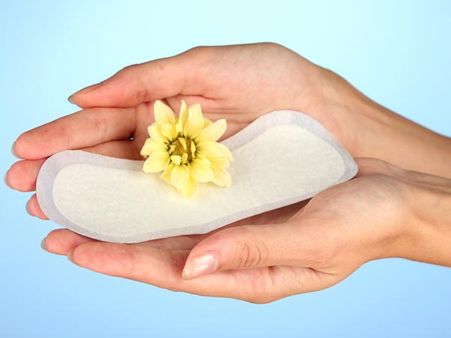
Tampon Or Sanitary Pad
Are female hygienic products such as a tampon or sanitary pad not hygienic or toxic?
Many sanitary pads and tampons are made out of cotton and rayon blend.
To give it a white sterile look, they are bleached. A chemical namely Dioxin is released in the process. Prolonged use of these toxic and unhygienic product can cause rashes or infections in your private part.

Too much plastic
According to an estimate, female hygiene products such as pads and tampons contain the plastic equivalent to 4 plastic bags in a single pad.
The chemicals present in tampons can be linked with heart diseases. Plastic present in your pads or tampons can risk the air flow and can cause bacterial growth in the vagina.
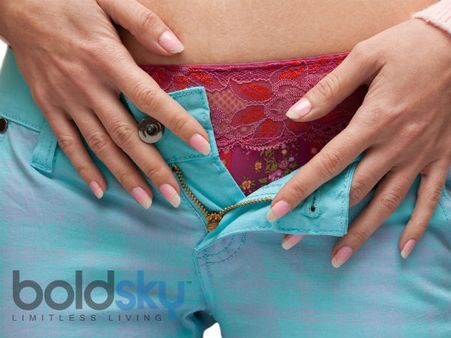
Are you better off without Feminine hygiene wash products?
One look at the shelf at any pharmacy and you will find lots of products such as wash, spray, wipes, etc, promising to give you cleaner, odour-free and a fresh vagina.
But according to doctors, you are better off without them. The vagina has an ecosystem of its own. Bacteria present there play a role in the reproductive health. It maintains the range of 3.5-4.5 pH to keep your vagina healthy.
So, the best thing to do is to not interfere with the natural process.
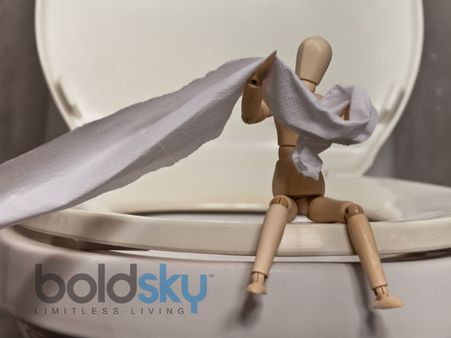
Paraben
In most vaginal washes and vaginal wipes, there is found a chemical known as parabens, which are used as a preservative. It causes irritation in some people and may also have an oestrogen-damaging property.
An alternative such as paraben-free intimate wash products could be a better option to these toxic products.

Toxic shock syndrome
This is a rare but a life-threatening condition caused by the use of super-absorbent tampons. One should take a precaution to never use super-absorbent tampons and never ever leave the tampon on overnight. Always wear a pad during the night.

Tampons lead to bacterial infections
Yes, it is true! Despite its popularity and convenience, tampons have lots of demerits as well. Tampons create an atmosphere in the vagina for bacterial growth. The tear caused by the tampon in the vagina help in the accumulation of bacteria in that region.
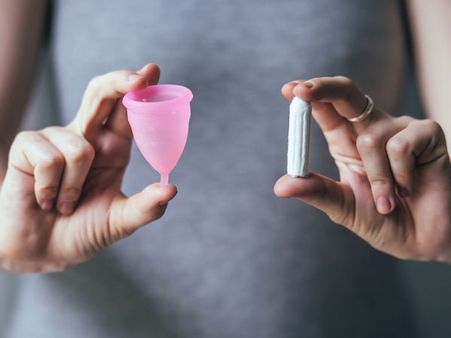
Is eco-friendly products need of the hour?
Eco-friendly products such as organic or cloth pads, which are free from pesticides and dioxin, could be the solution to have a better reproductive health. But, this still adds to the disposal problem. According to a study, these biodegradable sanitary products still take up to 25 years to dissolve.
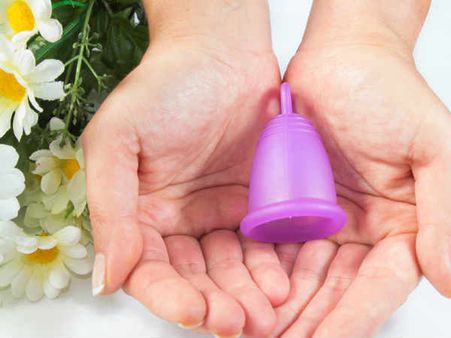
Reusable and bio-degradable menstrual cups
Reusable and bio-degradable menstrual cups made with medical-grade silicon would be just the perfect choice! It might set you back with 1800 rupees, but you will never have to buy another one, at least for another 8 years or so.
They do not hamper the natural lubrication process. They are easily bio-degradable, toxic free, good for the planet and can be used with ease.
-
 beautySalma Hayek's Guide To A Healthy And Happy Life: 5 Secrets Revealed
beautySalma Hayek's Guide To A Healthy And Happy Life: 5 Secrets Revealed -
 beautyHappy Birthday Kajol: 4 Wellness Tips To Learn From Our Beloved ‘Anjali’
beautyHappy Birthday Kajol: 4 Wellness Tips To Learn From Our Beloved ‘Anjali’ -
 wellnessWhat Is Personalized Medicine? Benefits, Why Biobanking Is Necessary
wellnessWhat Is Personalized Medicine? Benefits, Why Biobanking Is Necessary -
 wellnessChiropractic Care: When Do You Need A Chiropractor? Procedure, Benefits
wellnessChiropractic Care: When Do You Need A Chiropractor? Procedure, Benefits -
 wellnessCataract Surgery: Types, Pros And Cons; Expert Explains Everything You Need To Know
wellnessCataract Surgery: Types, Pros And Cons; Expert Explains Everything You Need To Know -
 diet fitnessExpert Shares Creative Ways To Exercise More When Time Is Short
diet fitnessExpert Shares Creative Ways To Exercise More When Time Is Short -
 wellnessHow To Finally Switch Your Sleep Position To End Back Pain
wellnessHow To Finally Switch Your Sleep Position To End Back Pain -
 diet fitnessVintage Fitness Trends That Are Still Effective Today
diet fitnessVintage Fitness Trends That Are Still Effective Today -
 wellnessDangers Of Indoor Tanning: Know Why Is It So Addictive?
wellnessDangers Of Indoor Tanning: Know Why Is It So Addictive? -
 wellnessHow To Get Vitamin D Without Risking Excessive Sun Exposure
wellnessHow To Get Vitamin D Without Risking Excessive Sun Exposure -
 wellnessWays To Deal With Throat Infections This Winter, According To An ENT Specialist
wellnessWays To Deal With Throat Infections This Winter, According To An ENT Specialist -
 wellnessWhy Do Men Most Frequently Report Erectile Dysfunction? Know From An Expert
wellnessWhy Do Men Most Frequently Report Erectile Dysfunction? Know From An Expert


 Click it and Unblock the Notifications
Click it and Unblock the Notifications



